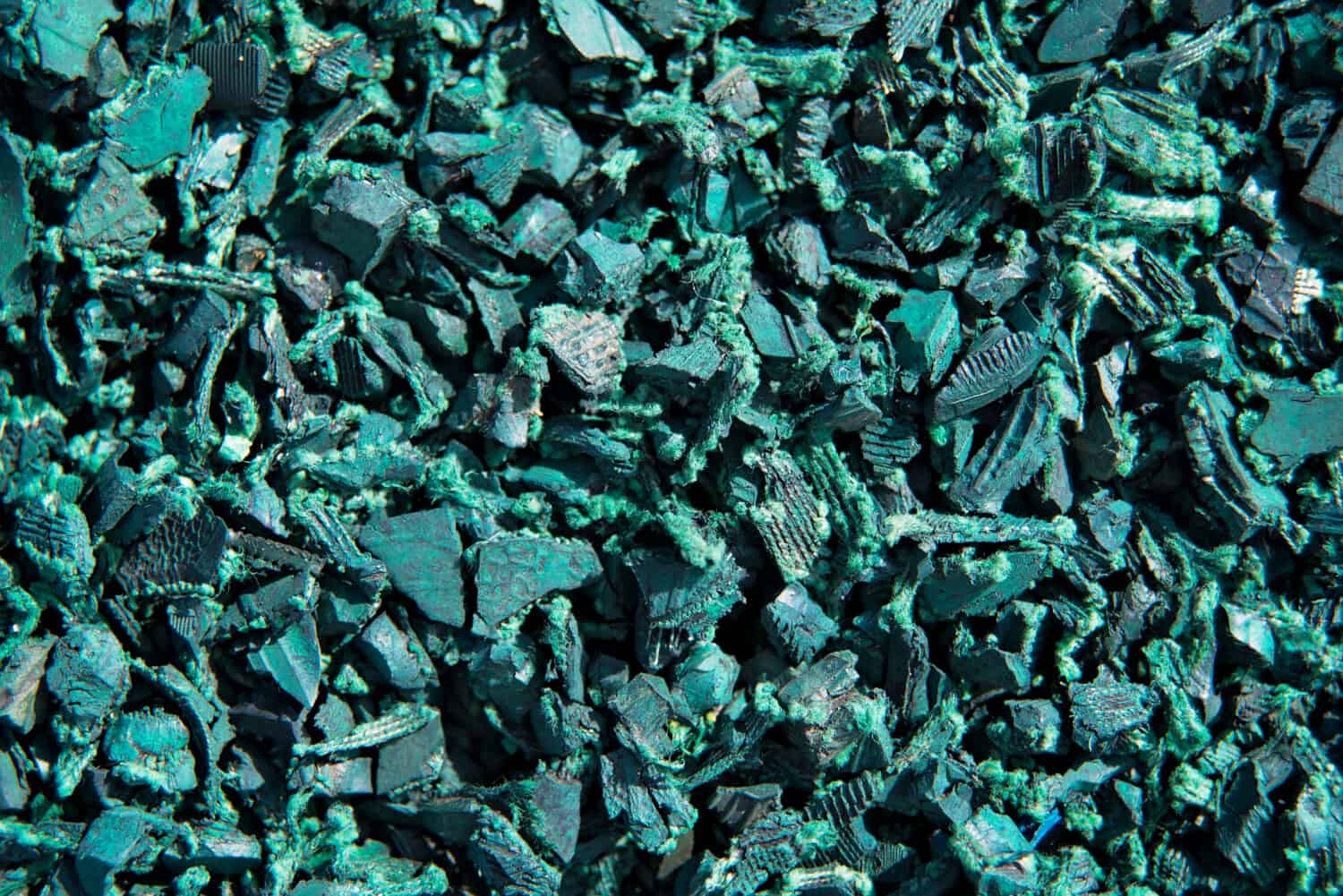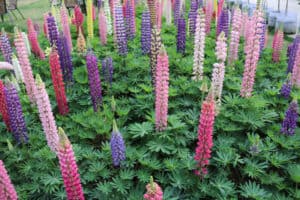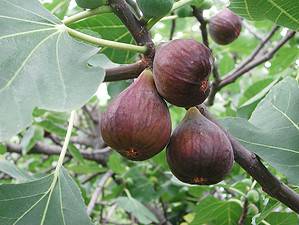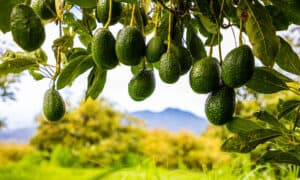Gardening enthusiasts understand the importance of using mulch to help insulate soil, trap moisture, and suppress weeds. However, it’s not always just about the benefits of using mulch – the type of mulch used is just as critical. While rubber mulch may seem like an appealing option with its promise of being cleaner and longer lasting than natural alternatives, it’s not the best choice from an environmental perspective. In this article, we’ll take a closer look at why rubber mulch deserves closer scrutiny and explore what other options gardeners might consider.
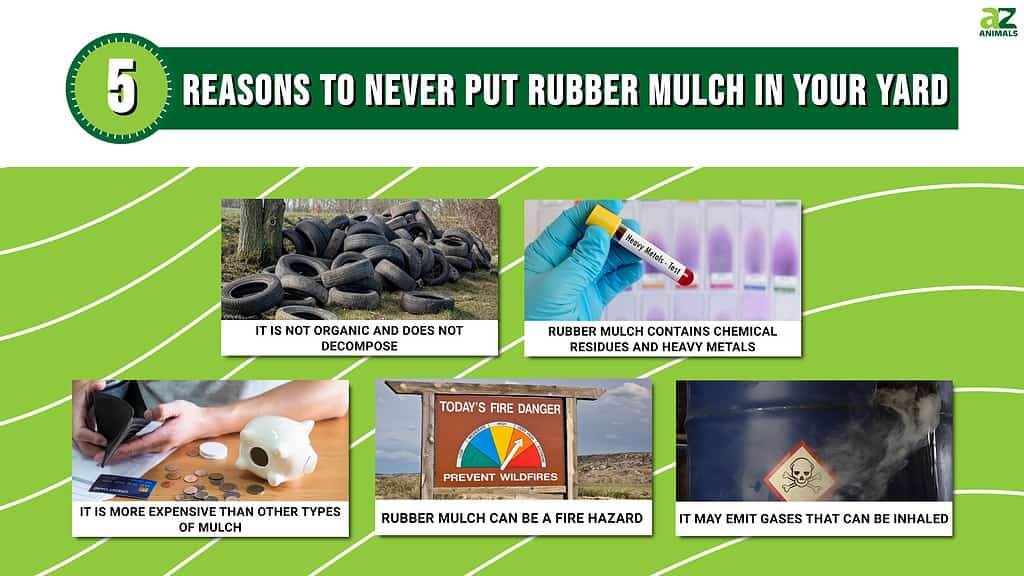
Listed below are 5 reasons why you might want to reconsider using rubber mulch in your yard:
1. It Is Not Organic And Does Not Decompose

Rubber mulch is made from shredding old tires and will never decompose.
©Massonstock/iStock via Getty Images
Rubber mulch is made by shredding recycled tires and, unlike organic mulch that breaks down over time and enhances soil with nutrients, rubber mulch doesn’t decompose. This leaves the soil with no nutritional value since the mulch stays inert. The accumulation of rubber particles from the mulch can also have negative effects on plant growth as it impedes nutrient absorption.
Another issue to consider is that the inability to decompose can lead to long-term maintenance problems. It can’t be replaced, thus raising the possibility of drainage issues and other yard complications. Even though rubber mulch may seem like a convenient and low-maintenance alternative, it’s not preferred by gardeners who prefer organic materials for environmental reasons.
2. Rubber Mulch Contains Chemical Residues and Heavy Metals
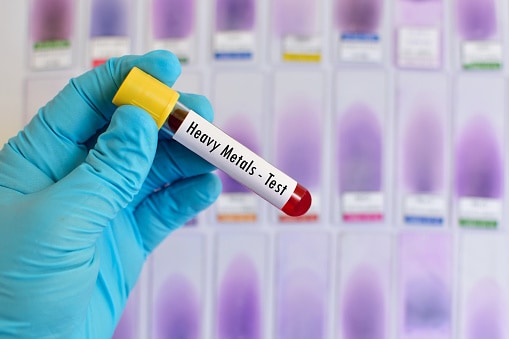
Rubber mulch may contain harmful heavy metals that pose a health risk.
©jarun011/iStock via Getty Images
Rubber mulch contains chemical residues that can be harmful to the environment and plants. These residues include substances like heavy metals and volatile organic compounds. Rubber mulch may contain various heavy metals, including cadmium, lead, and zinc, which are toxic substances that can pose a risk to human health, plants, and the environment.
Studies have indicated that such chemicals can leach out of the mulch and contaminate the surrounding soil, increasing the potential for damage to the ecosystem. For example, high levels of zinc, cadmium, and lead can be present in rubber mulch, affecting the integrity of the soil and the plant’s growth. Studies suggest that metal toxicity can even reduce the types of plants that can grow in areas where rubber mulch has been applied.
Also, as the rubber mulch decomposes, it can also lead to long-term environmental problems, with chemicals and heavy metals accumulating in the soil. It’s important to recognize that not all rubber mulch is the same, and some may contain higher levels of these hazardous residues than others. Thus, it’s vital to conduct thorough research before choosing the right rubber mulch product for your garden or landscape.
3. It Is More Expensive Than Other Types Of Mulch

Rubber mulch is more expensive than organic – leaving you with less to spend on plants.
©Stock photo and footage/iStock via Getty Images
Rubber mulch is generally more expensive when compared to other forms of organic mulch, such as wood chips or bark. The higher cost is due to the method of manufacturing, which requires specialized equipment to shred and paint recycled rubber. This process is often more expensive than the process of grinding wood.
One of the benefits of rubber mulch is that it is more long-lasting than organic mulch and doesn’t break down as quickly, so you won’t need to replace it as frequently. Therefore, even though the initial cost of purchasing may be higher than other mulches, it may ultimately be more cost-effective in the long run due to its durability and longevity.
However, when deciding which type of mulch to use, it’s worth considering all factors such as environmental impact, potential health risks, and cost. This will help gardeners and landscapers make a well-informed decision about which mulch type will be best for their needs.
4. Rubber Mulch Can Be A Fire Hazard
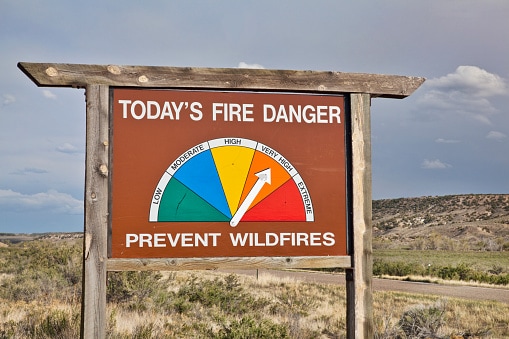
Rubber mulch may not cause a wildfire – but if it ignites it creates a fire that is hard to put out.
©marekuliasz/iStock via Getty Images
Rubber mulch can pose a fire hazard, even though it doesn’t catch fire easily. There are certain conditions under which it may ignite and burn at a high temperature, which can make it challenging to put out. According to the National Fire Protection Association, it’s recommended not to use rubber mulch within 30 feet of a structure because of its flammability.
Also, in areas with high fire risks, such as those prone to wildfires, the use of rubber mulch may increase the chances of fire damage. Hence, homeowners and gardeners need to consider the potential fire risks while deciding whether or not to use rubber mulch in their landscapes or gardens.
It’s always worth noting that there are fire-resistant alternatives to rubber mulch. For instance, one can use pebbles or rocks instead of rubber mulch, which will not pose a fire hazard.
5. It May Emit Gases That Can Be Inhaled
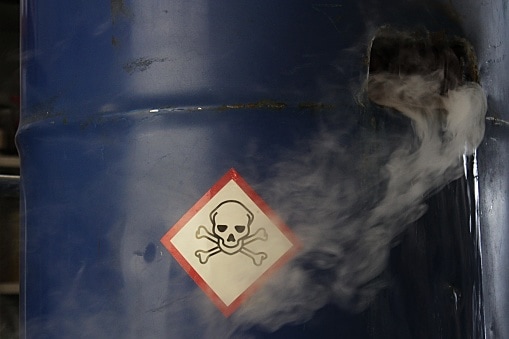
Hot weather can cause rubber mulch to emit volatile organic compounds that can be inhaled.
©ZayacSK/iStock via Getty Images
Some studies have shown that rubber mulch has gases that can be breathed in. During the summer months, the heat can cause the release of volatile organic compounds (VOCs). These gases can be problematic, particularly around kids’ playgrounds or outdoor recreational areas. When breathed, VOCs can make you have throat pain, headache, nasal irritation, or eye discomfort.
It’s essential to be aware of the potential health risks that rubber mulch can pose, especially around children. Taking some necessary precautions can help reduce these risks. It’s worth mentioning that other alternatives are available as well that do not cause such risks. Homeowners should explore these options when considering what materials to use for landscaping.
Eco-Friendly Alternatives To Rubber Mulch
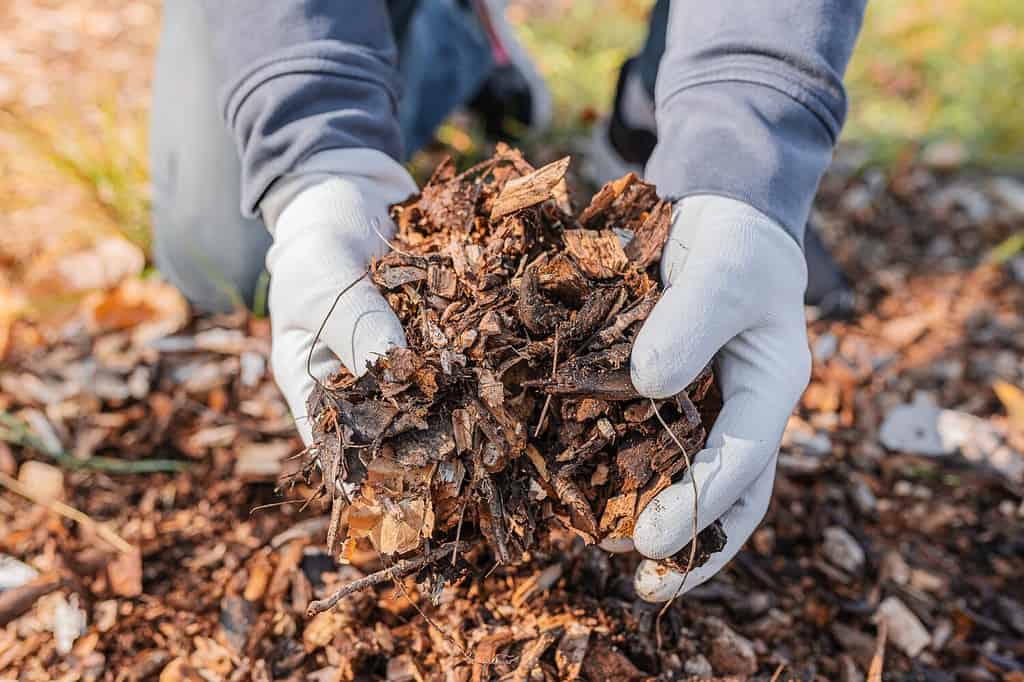
There are many eco-friendly alternatives to rubber mulch, including wood chips.
©larisa Stefanjuk/Shutterstock.com
Here are the eco-friendly alternatives to rubber mulch, in a list format:
Wood chips: Made from recycled or sustainably sourced wood, these come in various sizes and colors. They offer an effective cover for soil while creating a natural look.
Pea gravel: Made from small, smooth, and rounded stones, pea gravel provides excellent drainage while reducing soil erosion. They’re also relatively low-maintenance and can come in a variety of colors.
Sand: Sand is an inexpensive option that’s excellent for high-traffic areas. It’s also an excellent option for pathways and patios.
Pine needles: Pine needles are a great sustainable alternative to traditional wood mulch. They don’t require any treatment and are abundant in many areas, making them an eco-friendly choice.
Newspaper: Used newspapers can be a great mulch option for your plants. They’re easy to find, and they allow water and air to pass through them while also preventing weed growth. As they decompose, they also enrich the soil.
Cardboard: Used cardboard boxes can also be recycled and used as mulch. It’s an effective way to suppress weed growth while also enriching the soil. It’s best to remove any tape or labels before using it in the garden.
Please note that when using wood mulch, it’s still important to choose a type that doesn’t contain chemicals that could harm soil or plants. Some wood mulch, like colored wood chips, may contain harmful chemicals.
In Conclusion
Overall, while there are some potential benefits to using rubber mulch, such as its durability and ease of maintenance, there are also some significant drawbacks to consider, particularly in terms of its potential impact on soil health and the environment. Therefore, it’s wise to research and determine the best type of eco-friendly mulch for specific landscape and gardening needs.

Rubber mulch is made from old shredded tires and will never decompose.
©Kayla Blundell/Shutterstock.com
Summary of 5 Reasons to Never Put Rubber Mulch In Your Yard
| Reasons Not to Use Rubber Mulch | |
|---|---|
| 1 | It is not organic and does not decompose |
| 2 | May contain chemical residues and heavy metals |
| 3 | More expensive than other types of mulch |
| 4 | Rubber mulch can be a fire hazard |
| 5 | It may emit gases that can be inhaled |
Thank you for reading! Have some feedback for us? Contact the AZ Animals editorial team.

